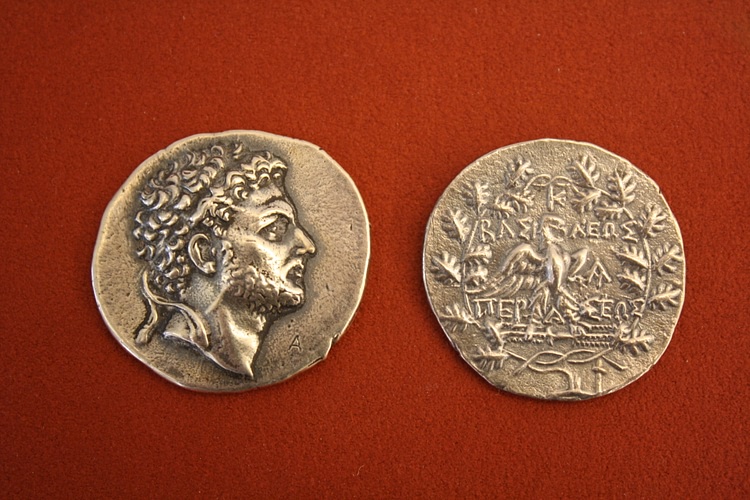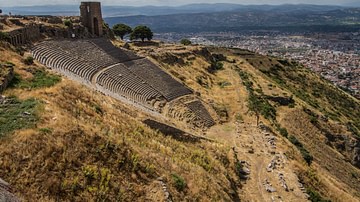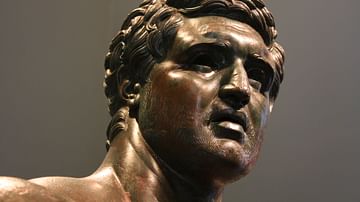
The Hellenistic Period is a part of the Ancient Period for the European and Near Asian space. The use of this period is justified by the extent of the Hellenic culture in most of these areas, due to the Greek political presence especially in Asia after Alexander's conquests, but also to a new wave of Greek colonization. In consequence, the Hellenistic Period is usually accepted to begin in 323 BCE with Alexander's death and ends in 31 BCE with the conquest of the last Hellenistic kingdom by Rome, the Lagid kingdom of Egypt. For the Asian part, we could lengthen it to 10 BCE, when the last Indo-Greek kingdom was conquered by Indo-Sakas.
Politically, the Hellenistic Period is characterized by a division and a split from Alexander's former empire, with endless wars between the Diadochi and their successors. Thus the Hellenistic kingdoms weakened themselves and thus gradually created space for competing kingdoms, such as Pontus or Bactria. At the same time, Roman power was in exponential expansion, annihilating other political presence in Italy, and then the Carthaginian dominance of the Mediterranean in the three Punic Wars. At the end of the Hellenistic Period the young Roman empire had almost reached its maximum expansion, from Lusitania (modern Portugal) to Syria and from South-Britain to Egypt.
Other general political evolution can be seen too: The Celts were shaken once more by a big wave of migration (from which arose among others the famous Galatians in Anatolia). The growing pressure of the Celts' neighbours, though, especially from Germanic Tribes and the Romans, reduced their dominion drastically at the end of the period. In the endless northern steppes of Asia, nomad pressures continued in a similar way as before, Sarmatians pressuring Scythes and Yuezhei pressuring Sakas, who increased so their attacks against the Bactrian and then Indo-Greek kingdoms.
In general, some things characterized this period in opposition of the previous one: The model of the city-state which dominated before was replaced by the different kinds of kingdoms, with more centralized power. Moreso, it is the basic idea of administration which changed: It was no longer a matter of managing the civic affairs in the name of the community, but by delegation in the name of one personal authority. At the same time, mercenaries were more frequently used in Hellenistic armies, in order to face the military and technical evolution which greatly increased the cost for equip a civic army. The best example is the fame and the use of the Galatians by the Hellenistic kingdoms.

Culturally, this period is not an intermediary era between the prosperous Classic and Imperial ones, as it was described in the past. Aristotle the father of modern sciences, Menander the great comedies' author, Epicure the moralist, Eratosthenes, but also Euclid, Archimedes, and Polybius lived and worked during the Hellenistic Period. This period showed progress in architecture, a lot of great euergetism (altruistic donations to the community), a multiplication of feast days and celebrations (shown by the great number of created theatres), the development of art and the creation of libraries, with the most famous being in Alexandria.







